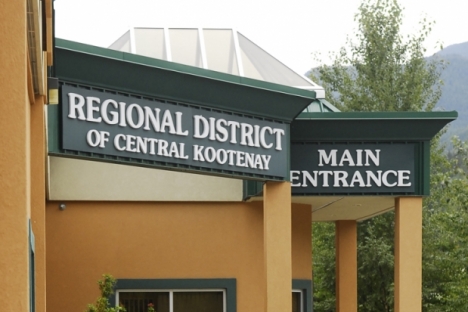Lack of compliance with producer-oriented recycling costs hits local taxpayers in the wallet
A provincially-mandated recycling program predicted to save B.C. regional districts and municipalities millions of dollars is instead costing the Regional District of Central Kootenay and its member communities over $425,000.
The Multi Material B.C. (MMBC) program was brought in to put the onus and the cost on the commercial producers of environmental waste to dispose of it, therefore saving local governments the cost of recycling, a service it had to tax to provide.
However, managing director of the MMBC, Allen Langdon, said in a meeting last month with the RDCK board of directors that hundreds of businesses are not meeting their obligations under the B.C. Recycling Regulation and are therefore not paying their fair share of the program’s costs.
The Ministry of Environment is trying to obtain compliance from these producers, Langdon noted, but currently there is no authority under the Recycling Regulation to compel producers to comply.
That non-compliance is costing the regional district and its taxpayers, said RDCK chair Karen Hamling (Nakusp).
RDCK staff prepared a recent report on costs they believed should have been picked up through service by MMBC. The amount for a portion of fiscal year 2014 which the RDCK had expected MMBC to cover was $425000.
The board is frustrated with the process and met with minister of Environment Mary Polak last year at the UBCM (Union of B.C. Municipalities) and have just met with her again this year to request that compliance be strongly pursued by the ministry, Hamling explained.
“It would appear that most of the big producers are on board with the exception of the newspaper industry and a several smaller manufacturers,” she said. “The minister is working toward compliance.”
Area A (Wynndel/East Shore Kootenay Lake) director Garry Jackman said frustrated is really not the appropriate word to describe the board’s feeling on the matter.
“Many large scale initiatives from the federal or provincial governments are tailored to the larger population centers, so in truly rural communities it is not uncommon to have to wait somewhere down the list,” he said.
MMBC offers a basic level of service which is less convenient than that which the RDCK has evolved to serve residents, Jackman noted.
“So the first year of discussions were around how to resolve that,” he said.
“Some adjustments were made to the first terms set out by MMBC and an agreement to enter into a service agreement was reached.”
MMBC then announced it would wait to enter into any further agreements until more product producers entered the program.
“I would call that more disappointing than frustrating,” said Jackman.
Provincial product packaging and paper producers range from multi-national corporations to small newspapers.
“Other than the newspapers I do not believe very many businesses in the Kootenays produce packaging and paper, and none of the newspapers are participating as far as I am aware,” said Jackman.
A move that is costing people in the RDCK and cities like Nelson more money.
A UBCM resolution was passed last month to call on the province to complete its compliance work so that the program can expand.
Jackman said asking the head of the MMBC to speak, as well as approaching the province, are two steps towards obtaining local compliance.
“Compliance and enforcement is within the realm of the stewardship consortium (MMBC) and the province,” he said.
Hamling agreed.
“We can keep lobbying the government to work with MMBC to ensure that we can become part of the MMBC network,” she said. “We can’t, as a regional district, compel producers to comply. This is up to the government.”
The regional district is continuing to offer the recycling program as it has in the past.
“But we should be part of the MMBC system and not having to have our taxpayers paying twice,” said Hamling. “They pay when they purchase the product and again to have us produce the recycling depots.”
Langdon said the program’s expansion depends on additional businesses joining MMBC. MMBC is a not-for-profit agency formed under the B.C. Society Act to develop a stewardship plan to satisfy the requirements of the Recycling Regulation for packaging and printed paper (PPP) producers.
Businesses can appoint MMBC as their agent to discharge their obligations under the Recycling Regulation. Since May 2014, approximately 1,000 businesses have joined the program.
MMBC services 96 per cent of B.C. households through its depot network. In the RDCK, the following communities receive curbside service through MMBC: Nelson, Castlegar, Kalso and Nakusp.
The RDCK board passed a resolution to continue its lobbying efforts to achieve the RDCK’s goal of joining the Multi Material B.C. program.
Story originated at The Nelson Daily






















